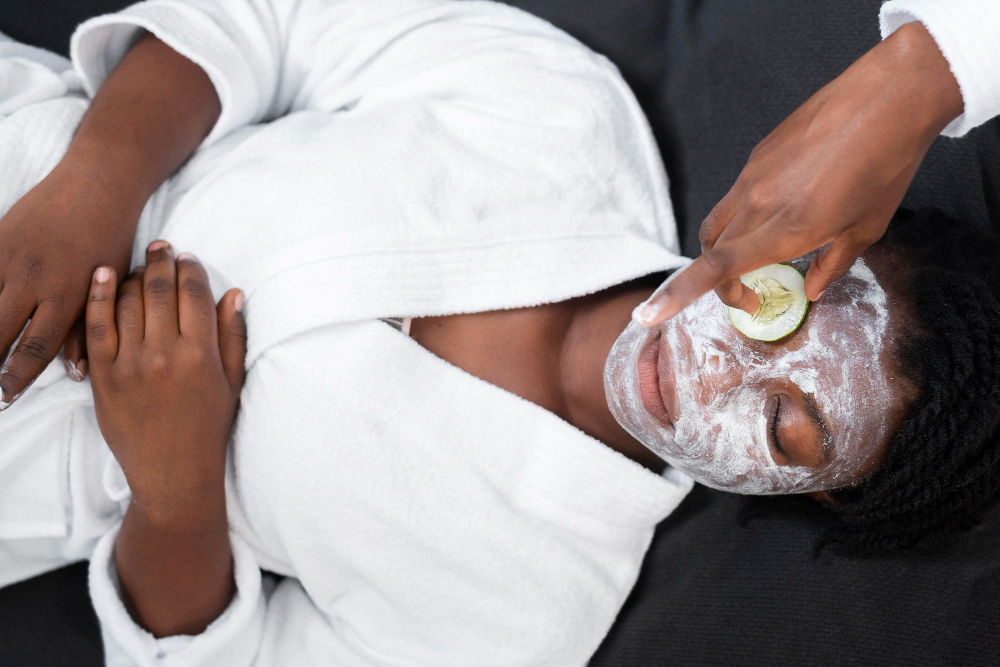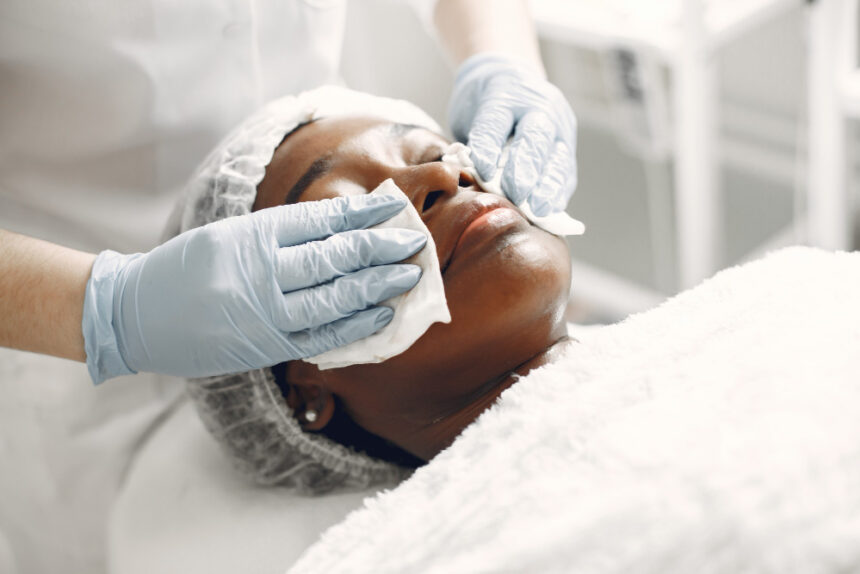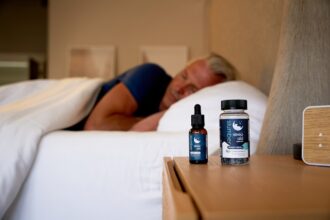Healthy, radiant skin has always been a symbol of vitality and self-confidence. In today’s fast-paced world, our skin is exposed to countless environmental stressors, from pollution and UV radiation to lifestyle-related challenges such as stress, sleep deprivation, and dietary imbalances. As a result, maintaining youthful and healthy skin can feel like an uphill battle. Fortunately, advancements in dermatology have paved the way for revolutionary treatments that target these concerns directly. Skin rejuvenation has emerged as a powerful approach, offering individuals the opportunity to restore their skin’s natural radiance while addressing signs of aging, sun damage, and other imperfections.
Dermatology today is no longer just about treating medical skin conditions; it’s about enhancing overall skin health and appearance. Whether it is minimizing fine lines, evening out skin tone, or improving texture, modern dermatological techniques provide tailored solutions that meet the unique needs of every patient. Skin rejuvenation treatments have become increasingly sophisticated, incorporating the latest in medical technology, science-backed methodologies, and minimally invasive procedures. Individuals can now achieve remarkable improvements in their skin without enduring lengthy recovery periods or invasive surgeries.
The journey to revitalized skin begins with a thorough consultation with a qualified dermatologist. This initial step is crucial, as it allows professionals to assess the skin’s current condition, discuss specific concerns, and design a personalized treatment plan. A free consultation offers an excellent opportunity to explore options, understand expected outcomes, and receive professional guidance. By understanding the underlying causes of skin aging and damage, dermatologists can recommend the most effective treatments, ensuring patients achieve optimal results while maintaining the integrity of their skin.
The Science Behind Skin Rejuvenation
Skin rejuvenation is not a single treatment but rather a spectrum of therapies designed to restore the skin’s youthful appearance. Advances in dermatology have made it possible to target multiple layers of the skin, promoting natural regeneration and repair processes. Treatments range from non-invasive procedures such as laser therapy, chemical peels, and microdermabrasion to more advanced interventions that stimulate collagen production and cellular renewal. The underlying principle of skin rejuvenation is to enhance the skin’s natural ability to heal and regenerate, resulting in a smoother, firmer, and more radiant complexion.
Modern dermatology emphasizes personalized approaches to skin rejuvenation. Each individual’s skin is unique, influenced by genetics, lifestyle, and environmental exposure. As a result, what works for one person may not be effective for another. Dermatologists carefully evaluate skin type, age, concerns, and goals before recommending a treatment plan. This individualized approach ensures that skin rejuvenation is both safe and effective, minimizing the risk of adverse reactions while maximizing visible improvements. Over time, patients experience not only aesthetic benefits but also enhanced skin health, which contributes to overall confidence and well-being.
Technological advancements have significantly expanded the possibilities for skin rejuvenation. Non-invasive laser treatments can target pigmentation, reduce fine lines, and stimulate collagen without downtime. Chemical peels exfoliate the outer layers of the skin, revealing fresher, more even-toned skin beneath. Micro-needling promotes collagen synthesis at a deeper level, improving texture and elasticity. These treatments, often used in combination, provide a comprehensive approach to revitalizing the skin. The continuous evolution of dermatological techniques ensures that individuals have access to the most effective, evidence-based options available.
Understanding the Causes of Skin Aging
To achieve lasting results in skin rejuvenation, it is important to understand the factors that contribute to skin aging. Environmental elements, such as exposure to sunlight and pollutants, play a significant role in accelerating the natural aging process. UV radiation, in particular, can cause photoaging, resulting in wrinkles, pigmentation, and loss of elasticity. Lifestyle factors, including poor diet, inadequate sleep, smoking, and chronic stress, further exacerbate skin damage. Even natural biological processes, like the gradual decline in collagen production, contribute to the visible signs of aging.
Dermatologists take a holistic approach when addressing skin aging, recognizing that long-term results depend not only on treatments but also on preventive care. Skin rejuvenation is most effective when combined with protective measures such as high-quality skincare, sun protection, and a balanced lifestyle. By addressing the root causes of skin aging, dermatologists can help patients maintain improvements over time, rather than offering temporary fixes. This approach aligns with the philosophy that healthy, vibrant skin reflects both external care and internal well-being.
Individual concerns vary widely, ranging from subtle fine lines to significant texture and tone irregularities. Skin rejuvenation treatments are tailored to address these unique issues, allowing patients to achieve results that are both natural and impactful. By understanding the interplay of genetics, environmental exposure, and lifestyle, dermatologists can craft strategies that enhance the skin’s natural beauty while promoting long-term health. This comprehensive perspective is what sets advanced dermatology apart from generic cosmetic solutions.
How Dermatology Treatments Enhance Skin Health
Skin rejuvenation is not just about appearance; it is deeply connected to the overall health and vitality of the skin. Modern dermatology treatments aim to restore the skin’s natural functions, ensuring it remains resilient, hydrated, and well-nourished. When the skin is properly cared for, it can better protect against environmental stressors, heal more efficiently, and maintain its elasticity. Advanced treatments work by stimulating the skin’s own regenerative processes, encouraging the production of collagen and elastin, which are critical proteins for youthful, firm skin. These proteins gradually diminish with age, making professional skin rejuvenation therapies a valuable tool for reversing visible signs of aging.
In addition to enhancing physical appearance, skin rejuvenation treatments can improve self-confidence and emotional well-being. The condition of our skin often impacts how we perceive ourselves, and dermatology offers solutions that help individuals feel comfortable and empowered in their own skin. Beyond the aesthetic benefits, patients often notice improvements in texture, tone, and overall radiance that create a noticeable sense of revitalization. This holistic effect is one reason why dermatology has become increasingly sought after—not just as a cosmetic service, but as a comprehensive approach to personal wellness and self-care.
Regular consultations with dermatology professionals are crucial to achieving the best results in skin rejuvenation. These sessions allow practitioners to monitor progress, adjust treatment plans as needed, and provide guidance on at-home care. Advanced treatments are most effective when combined with a consistent skincare routine, including gentle cleansing, proper hydration, and sun protection. By integrating professional dermatology with everyday care, patients can maintain long-lasting improvements while supporting their skin’s natural resilience. This dual approach ensures that skin rejuvenation is both effective and sustainable.
Laser and Light-Based Treatments
One of the most popular methods for skin rejuvenation involves laser and light-based technologies. These treatments have become renowned for their ability to target specific skin concerns with precision, offering transformative results with minimal downtime. Lasers work by penetrating targeted layers of the skin, stimulating collagen production and breaking down pigmentation irregularities. This process encourages the body’s natural healing mechanisms, resulting in smoother, firmer, and more even-toned skin over time. For individuals seeking dramatic improvements, laser therapies can address multiple concerns simultaneously, including fine lines, age spots, and uneven texture.
Light-based treatments, such as intense pulsed light (IPL), also play a significant role in skin rejuvenation. These therapies deliver controlled light energy to the skin, promoting cellular renewal and improving circulation. As a result, the skin appears brighter, healthier, and more youthful. Because these treatments are non-invasive, patients often enjoy the convenience of minimal recovery time, making it easier to integrate dermatology appointments into busy schedules. Over successive sessions, laser and light-based therapies produce cumulative benefits, enhancing the skin’s natural glow while maintaining its structural integrity.
Modern dermatologists customize these treatments to suit individual skin types and concerns. Factors such as skin sensitivity, pigmentation, and overall health are carefully considered when designing a treatment plan. By tailoring interventions to each patient, dermatologists ensure that skin rejuvenation is not only effective but also safe. The ongoing evolution of laser and light-based technologies continues to expand the possibilities for skin care, allowing more individuals to experience the transformative benefits of advanced dermatology.
Chemical Peels and Skin Resurfacing

Chemical peels remain a cornerstone of skin rejuvenation, offering a reliable method to refresh and revitalize the skin’s surface. By applying a carefully formulated chemical solution, dermatologists exfoliate the outermost layers of skin, revealing fresher, more youthful skin underneath. This process not only improves the skin’s appearance but also promotes cellular turnover, which is essential for long-term skin health. Over time, chemical peels can reduce fine lines, fade pigmentation, and improve texture, making them an integral component of a comprehensive skin rejuvenation strategy.
Skin resurfacing techniques complement chemical peels by addressing deeper layers of the skin. These treatments stimulate collagen production and accelerate the skin’s natural repair mechanisms. Individuals experiencing scarring, uneven texture, or pronounced wrinkles often see significant improvements after undergoing resurfacing procedures. Dermatologists carefully adjust the intensity and depth of these treatments to match each patient’s skin type and tolerance, ensuring optimal outcomes. Combining chemical peels with resurfacing techniques can enhance results, offering a multi-dimensional approach to skin rejuvenation.
The benefits of these treatments extend beyond aesthetics. Regular chemical peels and resurfacing sessions help maintain the skin’s elasticity and resilience, reducing the impact of environmental stressors over time. Patients often report a noticeable improvement in their skin’s overall health, texture, and radiance, reinforcing the value of consistent dermatology care. Through these interventions, skin rejuvenation becomes a holistic journey, emphasizing both beauty and well-being.
Micro-Needling: Stimulating Natural Renewal
Micro-needling has gained significant popularity as an effective technique for skin rejuvenation. This treatment involves creating tiny, controlled micro-injuries in the skin using specialized devices. While the idea of intentionally causing small punctures may sound intimidating, it is precisely this process that triggers the skin’s natural healing mechanisms. Collagen and elastin production increases, resulting in firmer, smoother, and more youthful-looking skin over time. Unlike some invasive procedures, micro-needling is minimally disruptive and suitable for a wide range of skin types and concerns, making it a versatile option in modern dermatology.
Patients who undergo micro-needling often notice gradual improvements in texture, tone, and elasticity. Fine lines become less pronounced, scars from acne or injury fade, and overall radiance is enhanced. This treatment can also complement other skin rejuvenation therapies, such as chemical peels or laser treatments, providing synergistic effects. Dermatologists design micro-needling protocols according to individual skin conditions, adjusting depth, frequency, and post-treatment care to achieve optimal outcomes. As a result, patients experience noticeable yet natural improvements without the risks associated with more invasive procedures.
An essential aspect of micro-needling is post-treatment care, which plays a crucial role in maintaining the results of skin rejuvenation. Dermatologists typically recommend gentle cleansing, moisturizing, and sun protection immediately after the procedure. Over time, the skin’s renewed capacity to repair itself not only improves appearance but also strengthens resilience against environmental stressors. This focus on natural regeneration makes micro-needling a cornerstone of modern dermatology approaches to skin rejuvenation.
Injectables and Fillers for Youthful Skin
Injectables, including Botox and dermal fillers, have revolutionized the approach to skin rejuvenation. These treatments allow dermatologists to target specific areas where wrinkles, fine lines, or volume loss are most pronounced. Botox works by temporarily relaxing facial muscles that cause dynamic wrinkles, while dermal fillers restore lost volume and improve contour. The combination of these techniques provides both immediate and long-lasting results, enabling patients to achieve a more youthful, refreshed appearance without surgery.
The appeal of injectables lies not only in their effectiveness but also in their convenience. Procedures are typically quick, require minimal downtime, and can be tailored to the individual’s unique facial structure and concerns. Advanced dermatology practices prioritize precision, ensuring that treatments enhance natural beauty rather than create an artificial look. When incorporated into a comprehensive skin rejuvenation plan, injectables offer transformative results, helping patients regain confidence and maintain a youthful appearance over time.
Long-term success with injectables also depends on routine care and regular consultations with dermatology professionals. Experts monitor changes in facial structure and skin condition, adjusting treatments as needed to maintain natural-looking results. This personalized approach ensures that skin rejuvenation through injectables is both safe and sustainable. Patients often report that the combination of injectables with other dermatology treatments, such as laser therapy or micro-needling, enhances overall skin quality and contributes to a harmonious, rejuvenated appearance.
Anti-Aging Treatments and Holistic Approaches
Beyond targeted procedures, skin rejuvenation encompasses a wide array of anti-aging strategies designed to support long-term skin health. Modern dermatology emphasizes the importance of both preventative and corrective measures. Preventative approaches include medical-grade skincare, nutritional guidance, and lifestyle recommendations aimed at reducing exposure to harmful UV rays, pollutants, and other environmental stressors. Corrective strategies focus on addressing existing damage, whether it is fine lines, pigmentation irregularities, or loss of firmness, using advanced treatments tailored to each patient’s skin.
Holistic dermatology integrates the concept that skin health is closely linked to overall well-being. Treatments for skin rejuvenation often consider the individual’s nutritional status, hydration levels, and stress management practices. By fostering healthy habits in conjunction with professional treatments, patients can maintain improvements over the long term while enhancing their overall vitality. This approach underscores the philosophy that radiant, youthful skin is not achieved solely through cosmetic intervention but through a comprehensive strategy that supports the skin’s natural resilience.
Anti-aging treatments in dermatology have evolved to balance efficacy with safety and comfort. Non-invasive procedures, combined with personalized skincare regimens, create an optimal environment for skin rejuvenation. Patients benefit from scientifically-backed methods that not only address visible signs of aging but also improve the skin’s functional health. Over time, the cumulative effect of these interventions results in skin that is firmer, smoother, and more luminous, reflecting the combined impact of advanced treatments and holistic care.
The Role of Nutrition in Skin Rejuvenation
Healthy, glowing skin begins from within, and nutrition plays a critical role in the success of any skin rejuvenation plan. Dermatologists emphasize that a balanced diet rich in vitamins, minerals, and antioxidants can significantly enhance the skin’s appearance and resilience. Nutrients such as vitamin C, vitamin E, and zinc support collagen production, protect against free radical damage, and aid in tissue repair. Incorporating foods that provide these essential nutrients not only complements professional dermatology treatments but also ensures long-lasting improvements in skin texture, elasticity, and radiance.
Hydration is another fundamental component of skin health. Drinking adequate amounts of water maintains the skin’s moisture balance, supports cellular function, and helps flush out toxins that can contribute to dullness and premature aging. Many patients undergoing skin rejuvenation treatments find that their results are enhanced when they combine professional care with proper hydration. Over time, consistent attention to diet and fluid intake reinforces the structural integrity of the skin, allowing treatments to deliver more noticeable and enduring outcomes.
Additionally, incorporating foods with anti-inflammatory properties, such as leafy greens, berries, and omega-3-rich fish, can reduce redness, irritation, and environmental stress-related damage. A nutrient-dense diet promotes not only aesthetic improvements but also overall skin health, which is a crucial factor in maintaining the benefits of advanced dermatology interventions. By adopting mindful nutritional habits alongside professional skin rejuvenation therapies, individuals can optimize results and enjoy healthier, more resilient skin.
Lifestyle Factors that Support Skin Health
Lifestyle choices profoundly influence the success of skin rejuvenation. Regular physical activity improves circulation, delivering oxygen and essential nutrients to the skin, which promotes repair and regeneration. Exercise also helps reduce stress, which can trigger hormonal imbalances that negatively impact the skin’s appearance. For those seeking comprehensive skin rejuvenation, integrating moderate, consistent physical activity into daily routines enhances both skin health and overall well-being.
Sleep is another critical factor. During rest, the body undergoes essential repair processes, and the skin is no exception. Quality sleep supports collagen synthesis, reduces inflammation, and helps regulate hormonal fluctuations that may contribute to premature aging. Dermatologists often emphasize the importance of maintaining a consistent sleep schedule as part of a holistic approach to skin rejuvenation. Patients who prioritize rest frequently notice that treatments yield more pronounced and enduring results compared to those with irregular or insufficient sleep patterns.
Stress management is equally vital. Chronic stress can accelerate aging, lead to breakouts, and impair the skin’s natural repair mechanisms. Techniques such as mindfulness, meditation, or yoga have been shown to reduce stress-related skin issues and improve overall complexion. When combined with advanced dermatology treatments, these lifestyle strategies support the skin’s natural ability to rejuvenate, creating a synergistic effect that enhances the results of professional interventions.
At-Home Skincare Routines that Complement Professional Treatments
Professional dermatology treatments provide dramatic improvements, but maintaining these results requires consistent at-home care. Skin rejuvenation is most effective when it is supported by a thoughtful daily routine tailored to the individual’s skin type and concerns. Gentle cleansing, targeted serums, and proper moisturization help maintain hydration, reduce irritation, and protect against environmental damage. Dermatologists often recommend specific products designed to support post-treatment recovery and prolong the benefits of in-office procedures.
Sun protection is arguably the most critical component of any at-home skincare regimen. Exposure to UV radiation accelerates aging, undermines the effects of skin rejuvenation treatments, and increases the risk of pigmentation irregularities. Daily application of a broad-spectrum sunscreen provides a barrier against these harmful effects while helping preserve the results of professional care. Integrating sun protection into every skincare routine ensures that improvements in texture, tone, and elasticity are maintained over time.
Exfoliation, when performed appropriately, also supports skin rejuvenation. By removing dead skin cells, exfoliation allows new, healthy skin to emerge, enhancing the effects of treatments such as micro-needling, chemical peels, and laser therapies. While professional interventions target deep layers of the skin, at-home routines focus on maintaining the skin’s surface health. The combination of both approaches produces more balanced, long-lasting results, making the skin appear smoother, brighter, and more youthful with consistent care.













